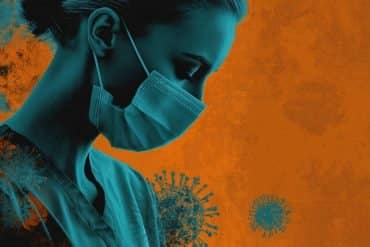Summary: A new review explores the genetic factors influencing reproductive health, fertility, and life expectancy. Researchers identified 37 key genes linked to traits such as age at first childbirth, menopause timing, and hormone levels, highlighting genetic connections to broader health outcomes.
Notable findings include the FSHB gene’s role in regulating menstruation and menopause and links between reproductive genes and longevity, cancer risk, and obesity. These insights advance understanding of how DNA impacts fertility and aging, offering potential for personalized healthcare approaches.
Key Facts
- Reproductive Genes: Genes like FSHB and ESR1 influence fertility, menopause, and cancer risk.
- Longevity Links: Earlier puberty or later menopause ties to longer life but higher cancer risk.
- Male Fertility: Genes like DNAH2 affect testosterone levels and sperm function, addressing an under-researched area.
Source: University of Oxford
Published today in Nature Aging, a new review by researchers from Oxford Population Health and the University of Iceland reveals how your DNA shapes reproductive health, fertility, and even life expectancy.
Led by researchers from the University of Oxford’s Leverhulme Centre for Demographic Science and the University of Iceland, the review explores how genetic variations can explain differences in reproductive health and longevity.

The study provides the most comprehensive review of male and female genetic discoveries of reproductive traits to date, and provides new insights into how our DNA affects when we have children, the timing of menopause, and even how that is connected to how long we live.
Genes at the heart of reproduction
Using the GWAS Catalog, an online database of Genome Wide Association Studies (GWAS), the researchers identified 159 genetic studies and 37 key genes that are linked to reproductive traits such as age at first childbirth, menopause timing, and hormones such as follicle-stimulating hormone (FSH) and testosterone.
These findings suggest that genetic factors play a significant role in broader health outcomes as well as influencing fertility.
One gene in particular, FSHB (follicle-stimulating hormone subunit beta), was found to be associated with eleven different reproductive outcomes. This gene helps regulate when menstruation begins and when menopause occurs, highlighting its role in reproductive health and ageing.
The review also revealed connections between these reproductive genes and rare genetic disorders, showcasing how DNA impacts both fertility and overall health.
Senior lead author Professor Melinda Mills, Director of the Leverhulme Centre for Demographic Science and Oxford Population Health’s Demographic Science Unit said ‘As more people delay parenthood to later ages, it is important to understand the genetic factors underpinning an individual’s reproductive health and fertility window.
‘Our study brings together research on the genetics of reproduction to reveal common genes across traits and insights beyond fertility that are inherently linked to health, body mass index (BMI) and obesity, hormone sensitive cancers, and even psychiatric and behavioural traits.’
First author Dr Stefanía Benónísdóttir, Postdoctoral Researcher at the Leverhulme Centre for Demographic Science and University of Iceland, said ‘By consolidating this research, we offer a clearer picture of how genetic factors shape reproductive health. This is essential for advancing healthcare, especially when it comes to infertility and reproductive ageing.’
Longevity, cancer, obesity risk and reproductive traits
The review explored the connections between reproductive genes and longevity, finding that genes like ESR1 (estrogen receptor 1) are linked to reproductive traits as well as to cancer risk.
For example, starting puberty earlier or experiencing later menopause may increase the risk of hormone-sensitive cancers like breast cancer, but these same traits are associated with a longer lifespan.
The FTO (fat mass and obesity associated) gene – previously found to have strong associations with BMI, obesity risk and type 2 diabetes – was also linked to multiple different reproductive traits.
Understanding these genetic links is critical as more people choose to delay having children, making reproductive health and ageing even more intertwined.
Male fertility
While previous research has focused on female reproductive health, the study reviews what is known about the genetics of male fertility. Genes like DNAH2 are shown to play a role in both testosterone levels and sperm function, making it crucial for male reproductive health.
Co-author Vincent Straub, DPhil student at the Leverhulme Centre for Demographic Science and Oxford Population Health, said ‘Male reproductive health is critical to overall fertility but often under-researched. By exploring the genetics of male infertility, we can uncover new insights and potential treatments for those struggling with reproductive challenges.’
Genetics across generations
The review examined how genetic changes affect future generations. As parents age, they accumulate de novo mutations – new, spontaneous genetic changes that can be passed to their children. These mutations can have significant effects on the health and development of offspring, previously discovered by senior co-author Professor Augustine Kong.
This comprehensive review offers crucial insights into how our genes shape reproductive health, fertility, and longevity, providing a foundation for more personalised healthcare approaches that could improve outcomes for individuals and families across generations.
About this genetics, aging, and longevity research news
Author: Christopher McIntyre
Source: University of Oxford
Contact: Christopher McIntyre – University of Oxford
Image: The image is credited to Neuroscience News
Original Research: Closed access.
“Genetics of female and male reproductive traits and their relationship with health, longevity and consequences for offspring” by Melinda Mills et al. Nature Aging
Abstract
Genetics of female and male reproductive traits and their relationship with health, longevity and consequences for offspring
Substantial shifts in reproductive behaviors have recently taken place in many high-income countries including earlier age at menarche, advanced age at childbearing, rising childlessness and a lower number of children.
As reproduction shifts to later ages, genetic factors may become increasingly important. Although monogenic genetic effects are known, the genetics underlying human reproductive traits are complex, with both causal effects and statistical bias often confounded by socioeconomic factors.
Here, we review genome-wide association studies (GWASs) of 44 reproductive traits of both female and male individuals from 2007 to early 2024, examining reproductive behavior, reproductive lifespan and aging, infertility and hormonal concentration.
Using the GWAS Catalog as a basis, from 159 relevant studies, we isolate 37 genes that harbor association signals for four or more reproductive traits, more than half of which are linked to rare Mendelian disorders, including ten genes linked to reproductive-related disorders: FSHB, MCM8, DNAH2, WNT4, ESR1, IGSF1, THRB, BRWD1, CYP19A1 and PTPRF.
We also review the relationship of reproductive genetics to related health and behavioral traits, aging and longevity and the effect of parental age on offspring outcomes as well as reflecting on limitations, open questions and challenges in this fast-moving field.






